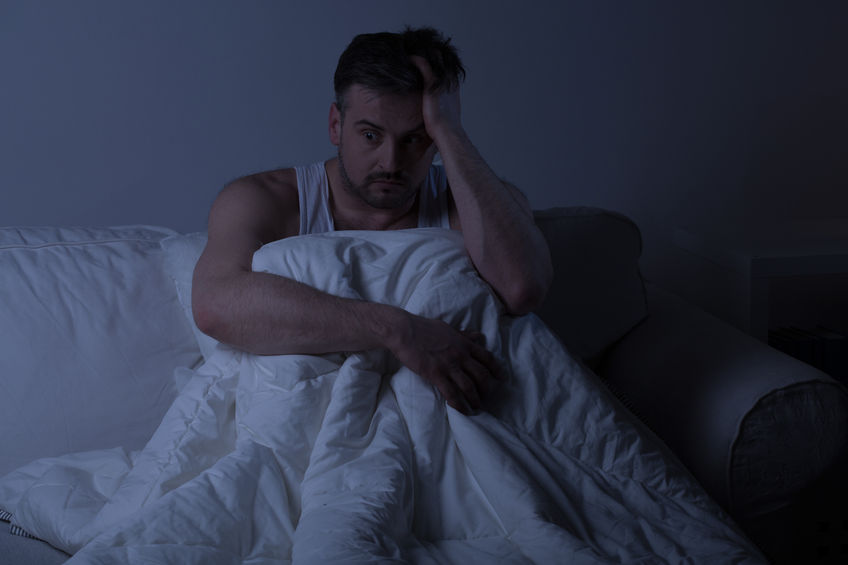The Link Between Homophobia and Insomnia and Why It Matters For LGB Health
April 30, 2018 by Justin Lehmiller
Sexual minority individuals—that is, people who identify as lesbian, gay, or bisexual, or who otherwise report same-sex attraction or behavior—are at increased risk for developing a number of physical health problems relative to people who are exclusively heterosexual. As some evidence of this, consider a new study published in the Archives of Sexual Behavior, which analyzed the health of sexual minorities in the United States using a nationally representative sample of more than 30,000 Americans [1].
No matter what measure of sexual orientation was utilized in this study (LGB identity, same-sex attraction, same-sex behavior), sexual minorities were at increased risk of various health problems compared to heterosexuals. For example, lesbian- and bisexual-identified women were at twice the risk for gastrointestinal conditions. Likewise, gay- and bisexual-identified men were more likely to have high cholesterol and to have more health conditions overall. However, it’s worth noting that bisexual men and women were actually at more risk for developing health conditions than were lesbians and gay men.
So where do these health disparities come from? The most prominent scientific explanation has been the minority stress hypothesis, or the idea that being a sexual minority is stressful and that chronic stress wears your body down over time. Given that bisexuality is highly stigmatized among both gay and heterosexual persons, being bisexual may be even more stressful than being gay, which may explain why bisexuals were found to have even more health disparities.
Interestingly, a new study published in the journal Psychology of Sexual Orientation and Gender Diversity suggests that LGB health disparities may also be the result of stress interfering with the amount and quality of sleep that sexual minorities get [2].
This study is the subject of my latest column over at TONIC and it involved an analysis of a large nationally representative US sample. In short, what researchers found is that people who identified as LGB reported having more strained relationships with their family (specifically, their parents). This, in turn, predicted experiencing more stress, and more stress predicted more problems both falling asleep and staying asleep.
This suggests that the impact of stress on the health of sexual minorities may be, at least in part, an indirect effect that occurs via a lack of sleep, given that sleep has been shown in numerous studies to be vital for maintaining good physical and mental health.
To learn more about this study and the link between sleep and health, check out the full article here.
Want to learn more about Sex and Psychology? Click here for previous articles or follow the blog on Facebook (facebook.com/psychologyofsex), Twitter (@JustinLehmiller), or Reddit (reddit.com/r/psychologyofsex) to receive updates.
[1] Dyar, C., Taggart, T. C., Rodriguez-Seijas, C., Thompson, R. G., Elliott, J. C., Hasin, D. S., & Eaton, N. R. (2018). Physical Health Disparities Across Dimensions of Sexual Orientation, Race/Ethnicity, and Sex: Evidence for Increased Risk Among Bisexual Adults. Archives of Sexual Behavior.
[2] Patterson, C. J., Tate, D. P., Sumontha, J., & Xu, R. (2018). Sleep difficulties among sexual minority adults: Associations with family relationship problems. Psychology of Sexual Orientation and Gender Diversity.
Image Source: 123RF/Katarzyna Białasiewicz
You Might Also Like:

Dr. Justin Lehmiller
Founder & Owner of Sex and PsychologyDr. Justin Lehmiller is a social psychologist and Research Fellow at The Kinsey Institute. He runs the Sex and Psychology blog and podcast and is author of the popular book Tell Me What You Want. Dr. Lehmiller is an award-winning educator, and a prolific researcher who has published more than 50 academic works.
Read full bio >


